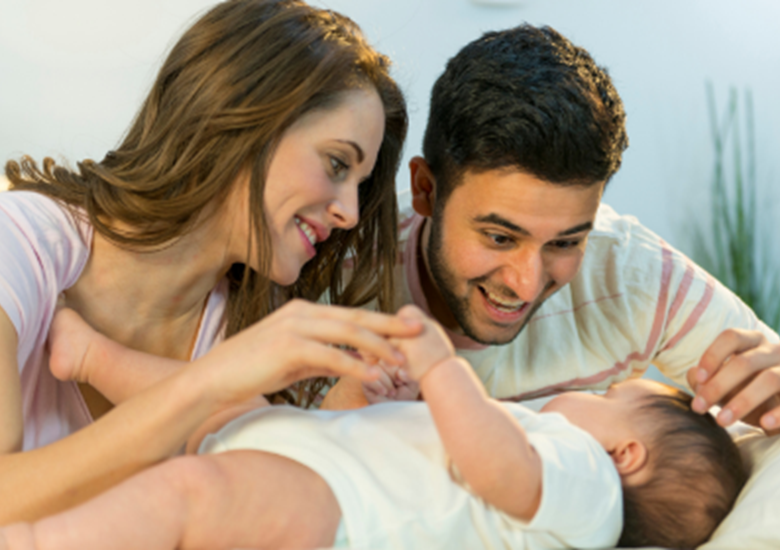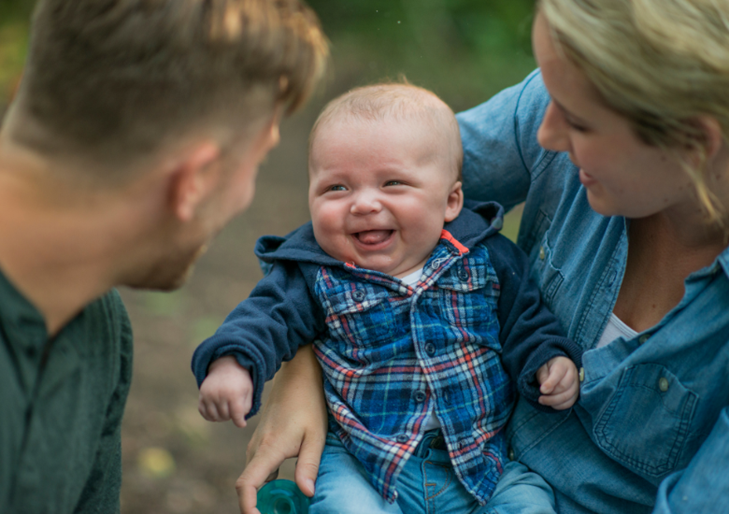
Babies begin hearing their parents voices a few months before they are even born. While the sound of the speech they hear is a bit muffled, baby is still getting used to the sounds of their parent’s unique voice and the sounds of their native languages.
Find out how conversations with your baby help build their language and communication skills.
During babies very early months you can chat about almost anything with them and your baby will love listening to you. Hearing you speak allows them to get used to all the sounds of spoken language.
Babies also love taking turns with you …whenever you can get face to face with baby…talk to them, smile, pause and wait expectantly for them to take their turn in the conversation. They will smile back at you and vocalise with happiness and then look at you and wait for you to speak.
From about three or four months baby will love when you copy their sounds and facial expressions; they will watch your face expectantly waiting for you to copy them.
Babies and parents can have different personalities.
 Your baby has lots of unique ways of starting and taking their turn in conversations. As their parent you will recognise the sounds, facial expressions and body movements they make to let you know their needs.
Your baby has lots of unique ways of starting and taking their turn in conversations. As their parent you will recognise the sounds, facial expressions and body movements they make to let you know their needs.
When you notice your baby trying to communicate with you, you can reply to them by saying what you think they might be trying to tell you. "Do you want Daddy to lift you up ?" "You are hungry"
Gradually you will begin to talk mostly about whatever is catching baby's attention. By commenting on what your baby is noticing, baby begins to make sense of language you use.
Baby will soon begin to notice that they can direct your attention. They may look at something interesting and check to see if you are also looking and wait for you to say something about it.
This is called shared or joint attention; it is an important way that parents and babies are partners … when you notice and talk about what has caught your baby’s attention, you are helping them to make sense of the words and short sentences you speak.
Talk naturally in a conversational style with baby and toddler about all your shared experiences. Every time you spend time together is an opportunity for a conversation and using interesting words.